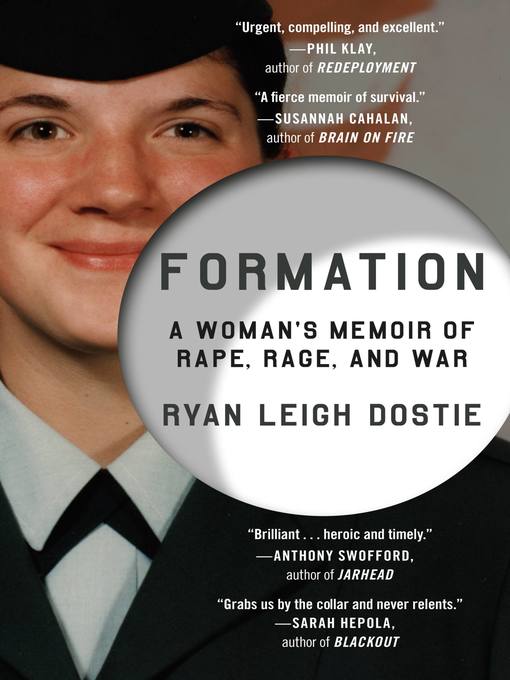
Formation
A Woman's Memoir of Stepping Out of Line
کتاب های مرتبط
- اطلاعات
- نقد و بررسی
- دیدگاه کاربران
نقد و بررسی

March 25, 2019
In the sparse landscape of war memoirs by female soldiers, Dostie’s resolute, literary account of her five years in the army sets a benchmark. Raised in a New England Christian community, Dostie enlisted in the army in 2000 right out of high school. Promises made by recruiters of an easy basic training were crushed when Dostie realized women “are shiny and new and very much disliked” in army combat training. She studied languages and was steered toward Persian, or Farsi, one of the “weird languages”—until 9/11 made her “linguistically relevant.” Six months after posting to a predominantly male tactical unit at Fort Polk, Louisiana, in 2002, she was raped by another solder. Dostie reported the assault, trusting “father figures” in her chain of command to deliver justice, but her case was found to be unsubstantiated and she was ostracized by her peers. Deployment to Baghdad in 2003 provided the distraction of violence; armed with an M16, she discovered “Iraq is the perfect place for rage.” After leaving active duty in 2005, she grappled with PTSD until marriage and motherhood anchored her enough to “live in the interims” of sanity and push forward. Dostie writes powerfully in this raw, explosive memoir. Agent: Eve Attermann, WME.

April 15, 2019
Dostie's debut memoir describes the journey of a woman soldier struggling to survive and compete in a system that demanded she fall in line. Though she hoped to travel and attend college after high school, a meeting with a recruiting officer led to Dostie's enrollment in the Army, where she became a Persian-Farsi/Dari linguist in military intelligence. There are two main stories here: The first one traces the aftermath of rape. The author was raped by a fellow soldier, and she details what seems like deliberate incompetence in the handling of the case through official channels. In addition to the emotional fallout of rape, she also faced the cruelty of seeing her attacker and his friends nearly every day. Discussing how her account of the events and her credibility were undermined, Dostie exposes how pervasive bias functions in this guarded system. Despite many challenges, the author managed to do what she was trained to do: follow orders. When she found herself on the front lines in Iraq as part of Operation Iraqi Freedom, determination and growing rage fueled her survival. The second story follows the development of a bruised but not defeated soldier struggling with PTSD, coping with the challenges of adjusting to civilian life, and contemplating the political and philosophical issues involved in the war. Dostie successfully navigated life at home, and she ably demonstrates the contrast between developing agency and a strong sense of self after sexual assault and the demands of the Army power structure, which expected more obedience than independence. Each of these narratives deserves to be heard, and though they may have been stronger as two pieces, Dostie does a service by frankly confronting the hypermasculinized culture of the armed forces. An occasionally uneven but unquestionably inspiring story traversing the personal and public battlefields of sexual assault in the armed forces.
COPYRIGHT(2019) Kirkus Reviews, ALL RIGHTS RESERVED.

February 1, 2019
Raised in an insulated Christian community, Dostie enlisted in the army and felt she was succeeding until she was raped by a fellow soldier. With women making up 14.5 percent of active-duty military, 80 percent of whom have reported being sexually harassed and at least 25 percent reporting having been sexually assaulted, Dostie's memoir is relevant.
Copyright 2019 Library Journal, LLC Used with permission.

























دیدگاه کاربران